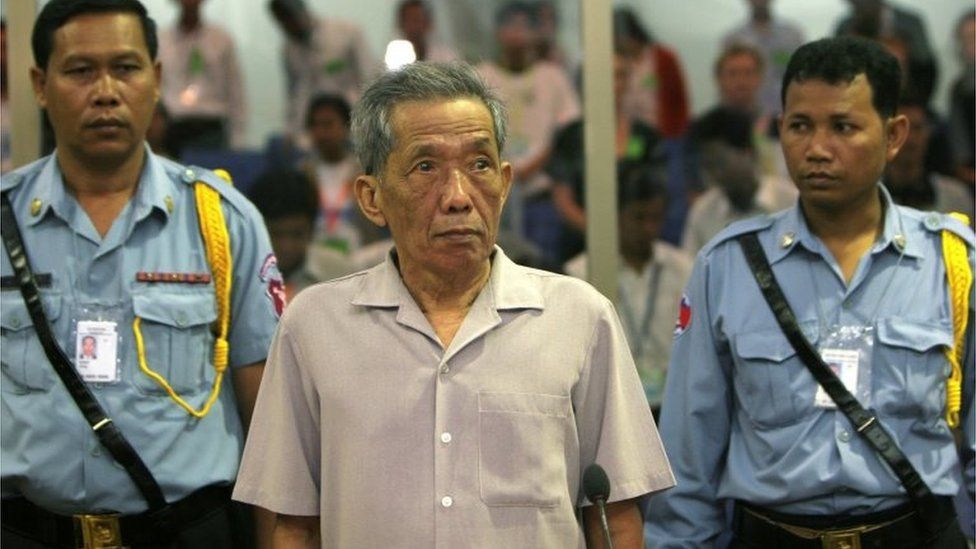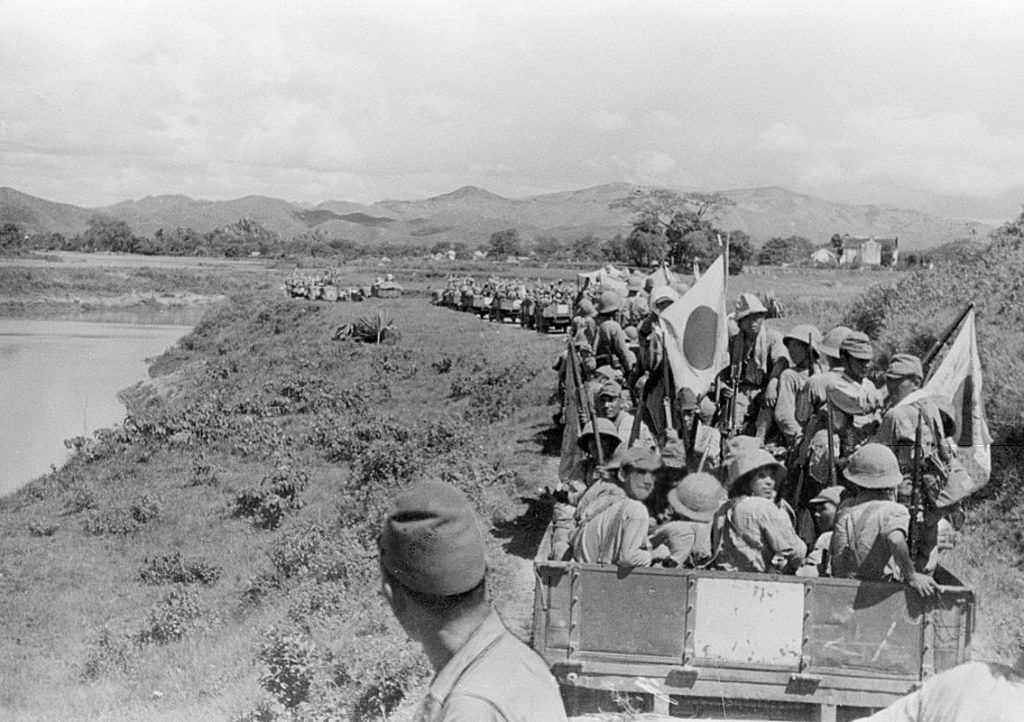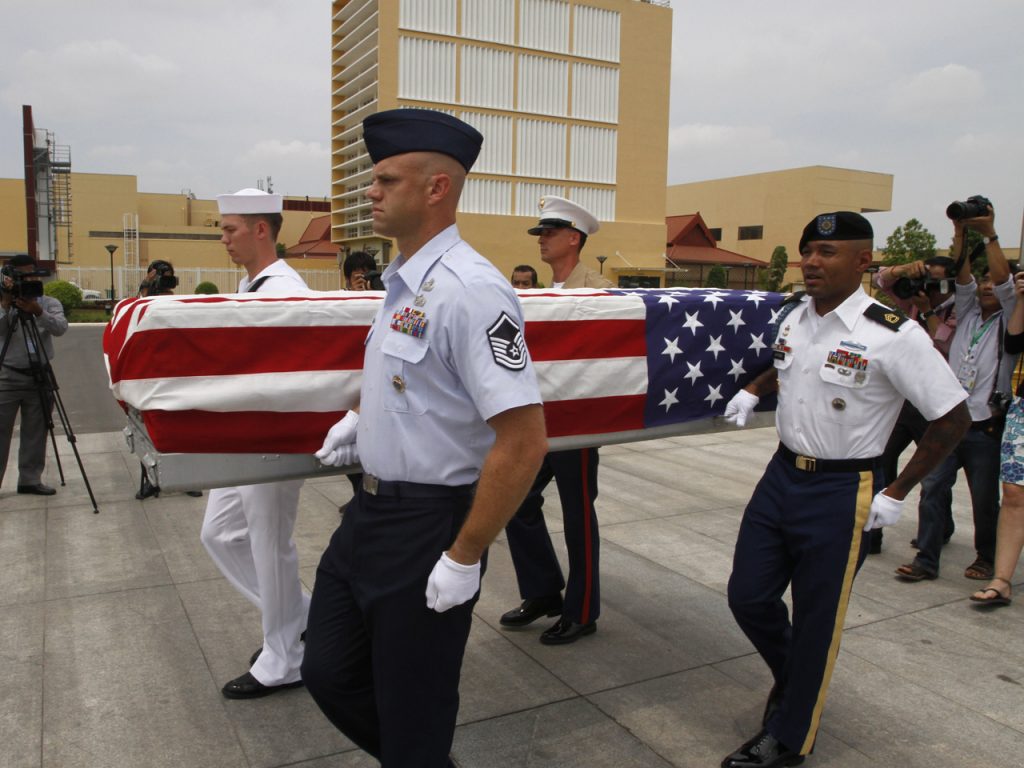On July 23, 1997, Laos and Myanmar joined ASEAN. Cambodia, due to join on this date, had been rejected after political violence. Cambodian Foreign Minister Ung Huot welcomed ASEAN mediation efforts and repeated that Cambodia did want to join the ASEAN grouping. The country retained observer status, and finally joined in 1999.
On July 23, 2011, one Cambodian soldier was killed along the Cambodian-Thai border while another was wounded. A local military commander stated that the soldier’s death was a result of clashes provoked by Thai troops. Pok Sophal, a commander for Oddar Meanchey’s Trapaing Prasat district, stated that, “We had an appointment for the meeting [between the two sides], and when we were walking, they opened fire at our soldiers”.
On July 24, 2014, a British expat living in Cambodia was convicted of defamation in the Phnom Penh Municipal Court for statements published on his personal blog relating to the director of a private investment firm. Rupert Winchester, a property reporter for the Phnom Penh Post who was living in Cambodia ran a personal blog called “The Mighty Penh.”
In a June 4, 2013, blog entry titled “I Get Knocked Down,” Winchester posted a photo of an orange colonial-era house, which was built at the turn of the 20th century a couple blocks from the Mekong River in Phnom Penh. Winchester claimed that Etienne Chenevier, a French property developer who serves as director of City Star Private Equity Asia, planned to raze the structure to make room for a seven-story condominium complex.
According to the complaint, Chenevier informed Winchester by telephone that City Star had no intention to knock down the building: “Why would we knock down our own building. … [I]f [you] print[] that I will sue [you].” After the conversation, Winchester posted on his blog, “Well I say you will [knock it down]. Knock yourself out, suing-wise, you cheap aggressive huckster.” Winchester also published an article containing similar statements about City Star in the Phnom Penh Post, where he was then working as an editor. The Phnom Penh Post subsequently issued a retraction. On June 7, 2013, Winchester removed the offending portions of his blog entry.
On July 27, 2013, Chenevier filed a complaint requesting criminal prosecution of Winchester. On July 24, 2014, Judge Ros Piseth found Winchester guilty of defamation, ordered him to pay $25,000 in damages to Chenevier, and imposed an additional $2,000 fine. According to The Cambodia Daily, Judge Piseth stated “[If you] say something bad about others it [could lead to] a defamation case.”
On July 25, 1978, in a briefing with Vietnamese Foreign Ministry officials the Soviet chargé d’affaires in Hanoi was told that the Kampuchean Government had deployed 14 of its 17 regular army divisions and 16 local regiments along the border with Vietnam.
On July 25, 1983, the “Research Committee on Pol Pot’s Genocidal Regime” issued its final report, including detailed province-by-province data. Earlier data showed that close 2 million people had died under Pol Pot’s regime, but the 1983 report showed that 3,314,768 people, an estimated 25% of the population, lost their lives in the “Pol Pot time.” This discrepancy in estimates could be due to differences in data collection methods, thereby resulting in either an undercounting of the 2 million statistic or an overcounting of 3 million statistic.
On July 25, 1987, the Khmer Rouge faction publicly disavowed any intention to return to power at the expense of other coalition factions and stated that to do so would jeopardize its national union policy and would alienate “friends in the world.”
July 25, 1997: Pol Pot was convicted of treason in a show trial organized by disgruntled Khmer Rouge officials.

On July 26, 1998, a general election was held. The result was a victory for the Cambodian People’s Party (CPP), which won 64 of the 122 seats, resulting in its leader Hun Sen becoming Prime Minister. Opposition parties sought a recount and claimed there had been irregularities. Voter turnout was 93.7%. Violence flared up in Anlong Veng- 10 were killed.
On July 26 2010, Kaing Guek Eav aka Comrade Duch was found guilty of crimes against humanity, torture, and murder; he was sentenced to 35 years imprisonment, with a pre-trial detention credit of 11 years being applied to his sentence and an additional controversial five-year deduction because his period of pre-trial detention exceeded the maximum allowed under Cambodian law.

On July 27 (or 28), 1931, Khieu Samphan, Samphan was born in Svay Rieng Province to Khieu Long- a judge under the French Protectorate government and his wife Por Kong.
Between July 27 and July 29, 1987, Vietnam’s foreign minister, Nguyen Co Thach, conferred with his Indonesian counterpart in Ho Chi Minh City and called for “an informal meeting” or cocktail party of all Cambodian factions without any preconditions. The cocktail party, to be held in Jakarta, was to be followed by a conference of all concerned countries, including Vietnam.
On 27 July 1990, Amnesty International released information about a Khmer Rouge massacre . The victims were 30 members of the Khmer Rouge’s own armed forces, accused of being ringleaders of a movement demanding greater freedom. Six were allegedly shot dead in their beds, and another 24 are believed to have been executed in a nearby forest.
On 27 July 2003, the general election to elect members of the National Assembly was held. The elections were won by the ruling Cambodian People’s Party, with 73 seats in the 123-seat parliament. However, due to the requirement for a two-thirds majority to elect a Prime Minister, a new government was not formed until July 2004 when a deal was reached with FUNCINPEC. Hun Sen was subsequently re-elected the post of Prime Minister.
On July 28, 1941, Japanese troops formally entered southern Indochina.

On 28 July 1999, Cambodia ratified the Landmine Convention ‘Convention sur l’interdiction de l’emploi, du stockage, de la production et du transfert des mines antipersonnel et sur leur destruction‘, and the Convention entered into force for Cambodia on 1 January 2000.
On June 28, 2006, “in appreciation and tribute to Samdech Hun Sen’s various important contributions to the world of education, his reassuring determination for the well being of his people and the vast improvement of Cambodia-Thailand relations, the Council of Bansomdejchaopraya Rajabhat University unanimously resolved to confer on HE Samdech Hun Sen the Honorary Degree of Doctor of Philosophy in Education for Locality Development in recognition of his role in developing the country through education and in contributing to strengthen the good relations between the two countries.”
On July 28, 2013, Cambodians went to the polls for the fifth time in 20 years. The Cambodian People’s Party (CPP), had its share of the 123-seat National Assembly slashed from 90 seats to 68 — its worst electoral performance since 1998. The remaining 55 seats were won by the newly formed Cambodia National Rescue Party (CNRP).
On July 29, 1988, President Bush Sr. said that he had instructed Secretary of State James A. Baker III to urge Cambodian officials in Paris to help account for American servicemen taken prisoner or missing in action in Indochina as Mr. Baker flew to Paris on this day for an international conference to find a solution to the Cambodian conflict.
Mr. Bush said that, in contrast to Cambodia, Vietnam had made some progress in accounting for missing American servicemen since he made an appeal in his inaugural address.
Mr. Bush called for greater Cambodian cooperation in remarks today to the National League of Families, the coalition of the families of missing Vietnam war servicemen, at the J. W. Marriott Hotel in Washington. Mr. Bush said Phnom Penh had been unresponsive to American appeals on the missing servicemen.

On July 29, 1999, the UN offered a compromise to the Cambodian government, proposing the establishment of a mixed tribunal for the prosecution of the Khmer Rouge leaders.
On 29 July 2018, the general election for the sixth National Assembly took place. The number of registered voters has decreased for the first time since 1993 and was down 13% from the 2013 general elections. With the absence of a credible opposition, the elections were viewed as a formality, and resulted in a widely expected landslide victory for the ruling Cambodian People’s Party (CPP), which won all 125 seats in the National Assembly. Despite calls to boycott the election, voter turnout was reported to be 83.02%.
